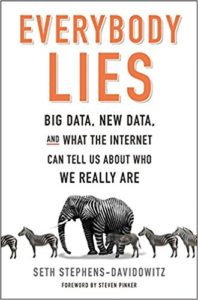Thanks to Professor Kyle Cattani for the guest book review!
Machines of Loving Grace: The Quest for Common Ground between Humans and Robots
By John Markoff, 2015

A couple of years back, Eric reviewed The Second Machine Age: Work, Progress, and Prosperity in a Time of Brilliant Technologies (by Erik Brynjolfsson and Andrew McAfee, 2014) and asked the (rhetorical) question of whether computers/robots are coming for your job. John Markoff, in “Machines of Loving Grace,” seems less interested in “whether” they will, but rather how they will behave once they get there. In particular, will we humans control these systems, or will they control us?
The Computer Science community has apparently had two long-standing approaches towards automation and robotics that not only were different but passionately opposed in a way seemingly possible only in academics. The first approach, called Artificial Intelligence (or AI), assumed that humans were superfluous and desired to create systems that operated independent of human overlords. A self-driving car with no steering wheel or brake pedals (that could show up at work to pick you up) exemplifies an ultimate application of this approach. The contrarian idea, deemed “intelligence augmentation” (or IA) sought to work with humans to amplify their abilities. A computer mouse makes it easier for a human to interact and use a computer and thus qualifies as IA. Most automobile technologies such as cruise control (and now adaptable cruise), lane assist, and emergency braking, fall into IA.
For years (decades even) the IA approach seemed to make more progress, but the two approaches now appear to be converging. Markoff argues that we are closing in on a “singularity” where robots become more powerful than humans and this raises the concern of whether they will remain well behaved—or whether they will ultimately rule us.
Markoff has been a technology and science reporter at the New York Times since 1988 but appears to have a (literally) Silicon-Valley-Centric view of the world focusing on the Stanford community and Silicon Valley companies. Perhaps that is because so many advances in the field come from this community, but it felt a bit provincial in a way that made me suspicious (even though I am a Stanford grad). Machines of Loving Grace talks lovingly about self-driving cars, robots, and Siri (and its ilk) and I liked those chapters the most. Perhaps it is just me, but the rest of the book felt like a litany of dozens of people I couldn’t keep track of.







